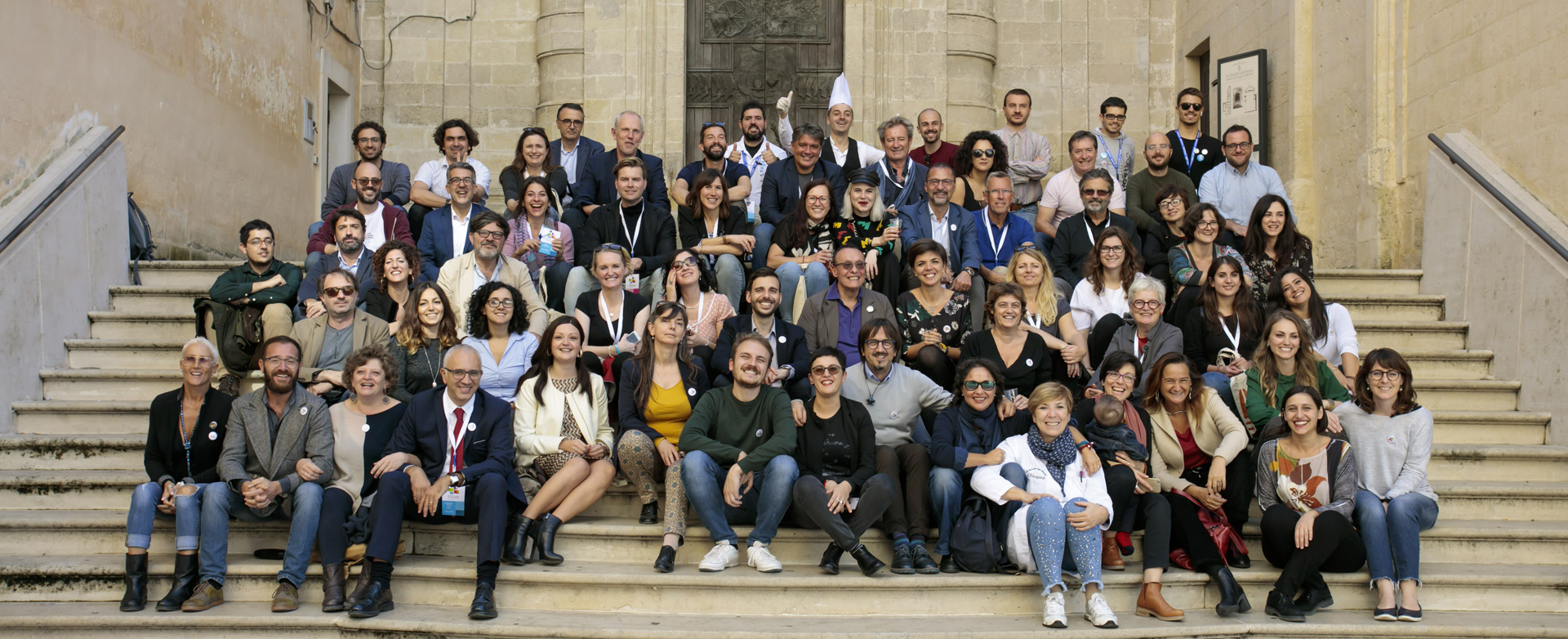
Matera –the Hub of Europe – hosting the gathering of European Capitals of Culture
2018 is the European Year of Cultural Heritage – an occasion when all of Europe celebrates the inestimable artistic value of our continent, motivating individuals to rediscover creativity and culture in order to form a new type of governance. And it is in this very special year that from October 18th to 20th Matera hosted the annual gathering of the representatives of European Capitals of Culture past, present and future, internationally known as the “ECoC Meeting”. This step marked the consolidation of an important European network that has been working on a shared model with the theme of legacy being one of the key components on which the sustainability of the programmes of the European Capitals of Culture is based.
The guests – representatives of Liverpool and Stavanger 2008, Essen and Pécs 2010, Turku 2011, Maribor and Guimarães 2012, Marseille and Kosice 2013, Mons and Plzen 2015, Wroclaw and San Sebastìan 2016, Aarhus and Pafos 2017, Valletta and Leeuwarden 2018, the upcoming Galway and Rijeka 2020, Novi Sad and Eleusis 2021, Kaunas 2022 as well as Plovdiv, the Capital twinned with Matera in 2019 – learned about the cultural projects of Matera 2019, becoming familiar with the voices and faces of the people who conceived them and set them up.
The Meeting started off on October 18th with a group photo to mark this significant moment of spontaneous empathy. It was an afternoon to be remembered with the members of the European Capitals of Culture that had become very special temporary inhabitants of the city and were there to discover some of Matera 2019’s original trails as part of the “People Places Purposes” Project. At dusk, the architect, city planner and UNESCO expert Pietro Laureano presented the “Ars Excavandi” exhibition with one of the most iconic views before him – Matera as seen from Murgia Timone. From there, the guests were able to gain insight into the unique landscape that gives a visual account of the culture of cave art which inspired this project.
At Cava Paradiso, Joseph Grima announced the performance of electronic music “Cosmic Jive/ The Apollo Soundtrack” to be held in July 2019 with the great Brian Eno as the star of the evening. He then presented I-DEA, a research project on the cultural, artistic and anthropological history of Basilicata which will end with a memorable exhibition in 2019. The tour on the first day drew to a close at the “Tommaso Stigliani” Provincial Library where the Teatro dei Sassi is working on a project entitled “Atlas of the city’s Emotions”, coproduced by Matera 2019 in cooperation with Scuola Holden of Turin. This project has already engaged over 400 citizens of Matera and therefore deserved to be counted among the prime examples of the co-creation process on which the cultural programme of Matera 2019 is based.
On Friday October 19th, together with the Feltrinelli Foundation we attempted to answer an important question: Does participation in cultural events increase the awareness people have of their personal identity or does it further a sense of community? The debate came to a close with the presentation of the Manifesto “Parole O-Stili” whose aim it is to counter the use of derogatory language which spreads so easily on the Web nowadays.
Following a visit to Palazzo Lanfranchi with Marta Ragozzino, the director of the Museums of Basilicata, who described the various exhibits, an afternoon of art and entertainment was held at the Open Design School. There, the guests took part in workshops conducted by the Lumen Project and, at the end of the day, an exciting basketball game united everyone in the name of sport.
On Saturday 20th October – the final day – an in-depth look was taken into the sustainability of cultural projects as regards medium-to-long term programming and the best practices which were presented by Valletta 2018 and Leeuwarden 2018, the current European Capitals of Culture. During the second part of the morning, an agreement between Expo Dubai 2020 and Matera 2019 was signed to take Matera’s experience as the European Capital of Culture for 2019 to the Italian pavilion at this first-time ever Universal Exposition in an Arab country.
The final moment of the EcOc Meeting was the encounter between the representatives of the European Capitals of Culture and local families who offered to host the foreign visitors for lunch in their homes. The aim was to introduce the most quintessential culinary specialties of our tradition, telling stories connected to the recipes, thereby contributing to the “Mammamiaaa” Project’s great archive in progress that is to be presented in 2019.
The Ecoc Meeting days in Matera have once again demonstrated that, more than any other productive sector, what still truly keeps Europe together is culture.





